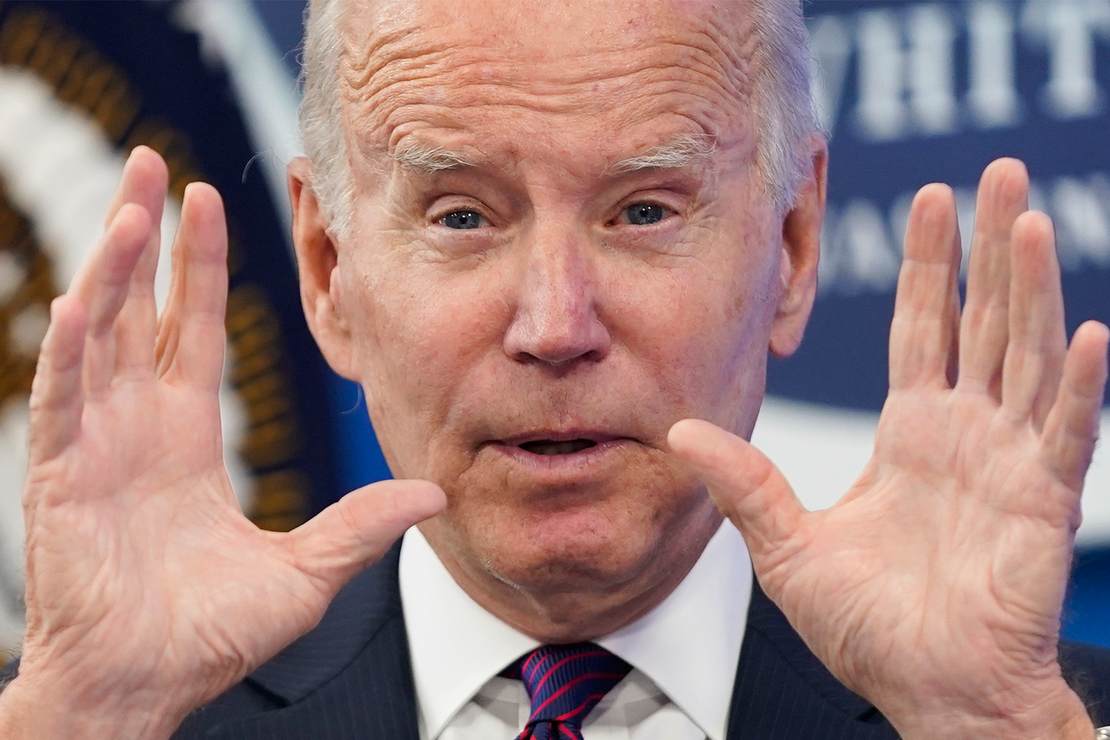
This won’t be news to regular readers but it’s something that the NY Times has caught up with this Biden-trend. The story is headlined “Biden, Storyteller in Chief, Spins Yarns That Often Unravel” which is a polite way of saying Biden routinely makes s**t up. There’s a lot of throat clearing about President Trump and even President Reagan but eventually the Times does recall that Biden has been doing this for a very long time.
During his first presidential run in 1987, Mr. Biden said he “went to law school on a full academic scholarship,” bragged that he “ended up in the top half” of his law school class, and insisted that he “graduated with three degrees from undergraduate school.”
If fact, as he later admitted, he had only a partial scholarship, was 76th out of 85 law school student and graduated with one bachelor’s degree (with a double major in history and political science).
“I exaggerate when I’m angry,” Mr. Biden told The New York Times in September 1987, “but I’ve never gone around telling people things that aren’t true about me.”
The controversy came shortly after Mr. Biden admitted plagiarizing parts of a speech from Neil Kinnock, the leader of the Labour Party in Britain at the time. Mr. Biden dropped out of the presidential contest.
Thirty-two years later, as he campaigned for the presidency in 2019, Mr. Biden described how he had traveled to Afghanistan to pin a Silver Star on a Navy captain for retrieving the body of a fellow American from a 60-foot ravine.
The Washington Post looked into the claim about the Navy Captain:
“This is the God’s truth,” Biden had said as he told the story. “My word as a Biden.”
READ RELATED: Paper of Record? NYT's embarrassing Emily Litella flip-flop on election conspiracy theories
Except almost every detail in the story appears to be incorrect. Based on interviews with more than a dozen U.S. troops, their commanders and Biden campaign officials, it appears as though the former vice president has jumbled elements of at least three actual events into one story of bravery, compassion and regret that never happened.
And we’ve all heard Biden tell the Amtrak story. That’s the one where his friend the conductor tells him he rode more miles on Amtrak then he flew as Vice President. Only as CNN pointed out, “Biden was friends with the Amtrak conductor at the center of the story, Angelo Negri. But Negri had been dead for more than a year – and had been retired for more than two decades – before the earliest moment they could conceivably have had the supposed conversation Biden keeps describing.”
Earlier this year during a speech in Atlanta, Biden claimed he’d been arrested protesting for civil rights in the 1960s. Even Politifact couldn’t bail him out of that one, rating the claim “False.” The NY Times points out this isn’t the only time he’s claimed to have been a Civil Rights hero.
During the 2020 campaign, he said he had been arrested while visiting Nelson Mandela in South Africa. He later admitted he had been blocked from moving by police, but not arrested. In 2008, he said he had been arrested as a college student following a group of women into an all-female dorm. He hadn’t, as he conceded years later. In 2007, he recounted being arrested by a Capitol Police officer as a 21-year-old student in 1963. But in his memoir, he writes that the officer “didn’t arrest me or anything.”
Much more recently, Biden strangely claimed to have grown up Puerto Rican or something. The Times notes there is “not a single mention of Puerto Rico in either of his biographies.”
Biden also recently claimed, while touring the devastation in Florida, that his own house had once been nearly destroyed by lightning. “We didn’t lose our whole home, but lightning struck and we lost an awful lot of it,” he said. Lightning did strike his house the but the severity was pretty limited: “News reports at the time called it little more than ‘a small fire that was contained to the kitchen’ and quoted the local Delaware fire chief as saying “the fire was under control in 20 minutes.”
It seems that almost any story Joe Biden tells about himself is suspect, especially when that story makes him just like his audience. What’s worrisome is that he doesn’t always seem to know that the stories he’s telling and re-telling aren’t true. But that aspect of his storytelling is still something the Times isn’t ready to talk about.
Source:






